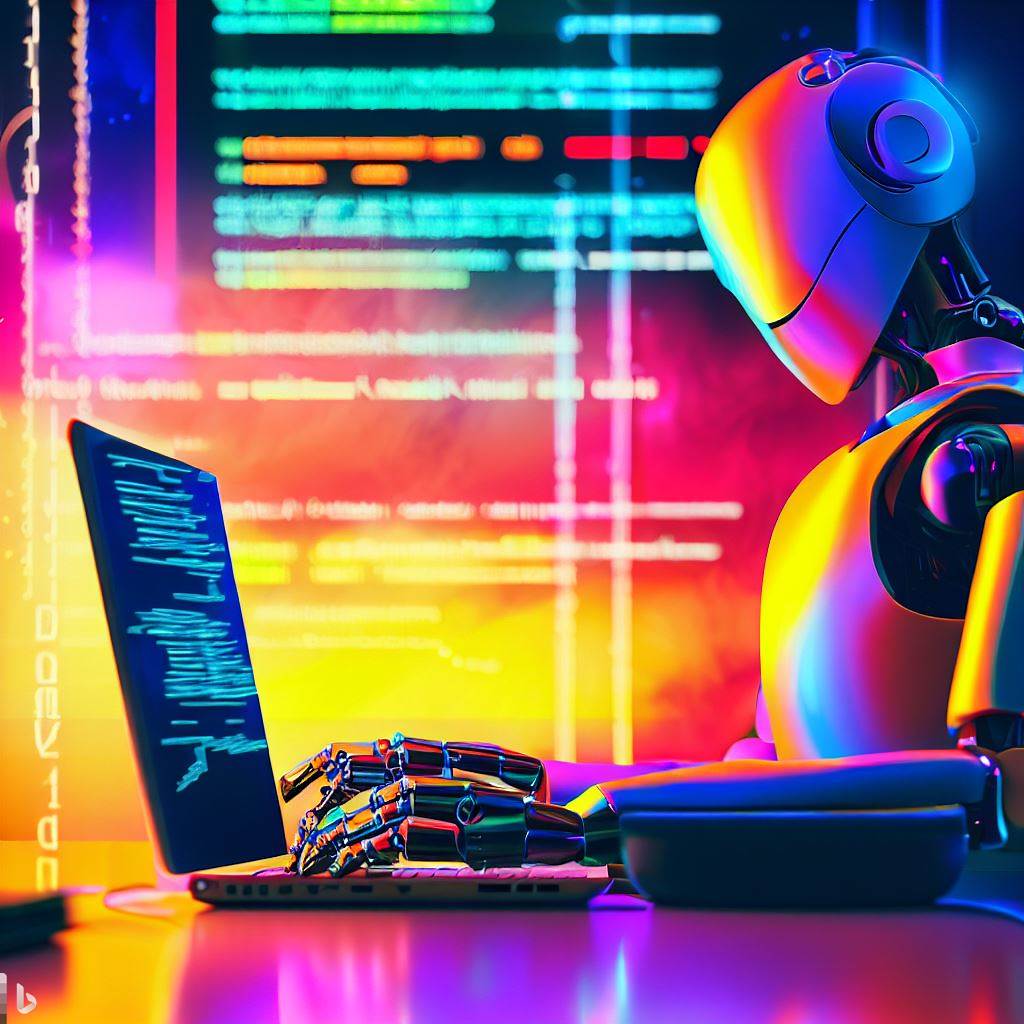The Future of AI in Web Development and Hosting
The integration of AI in web development and hosting has revolutionized the industry. With the rise of machine learning and natural language processing, websites are now more efficient, user-friendly, and personalized than ever before.
In this article, we’ll explore the latest advancements in AI technology and how they are transforming the web development and hosting industry.
AI automation in web development
AI is being used to automate website creation and design, reducing the time and resources required to build a website. AI-based website builders, such as Wix ADI use machine learning algorithms to create websites from scratch or enhance existing ones.
These builders can analyze user preferences and provide personalized design options, resulting in a more efficient and user-friendly website.
Benefits:
- Faster website creation: AI can automate many of the tasks involved in website development, such as designing, coding, and testing. This can significantly reduce the time it takes to create a website and allow developers to focus on more complex tasks.
- Improved website design: AI-powered design tools can analyze user preferences and behavior to create customized website designs that are more visually appealing and engaging. This can lead to higher user satisfaction and engagement.
- Increased efficiency and cost-effectiveness: By automating many of the tasks involved in website development, AI can increase efficiency and reduce costs. This can make website development more accessible to small businesses and individuals who may not have the resources to hire a dedicated development team.
Potential drawbacks:
- Limited creativity: While AI can be useful in automating repetitive tasks, it may not be as effective in creating innovative or unique website designs. This can limit the creative potential of website development and result in websites that look similar or generic.
- Lack of personalization: AI algorithms rely on data to function, and if the data is incomplete or inaccurate, the optimization results may be skewed. This can lead to websites that are less personalized and less effective in meeting the needs of individual users.
- Ethical concerns: Using AI for website development raises ethical concerns about data privacy and the potential misuse of user data. There is a risk that AI-powered websites may collect and use user data without their consent. This could lead to privacy violations and ethical concerns.
Boosting website performance with AI
Another area where AI has the potential to improve website development and hosting is website performance optimization. Tools like Google’s PageSpeed Insights use machine learning to analyze website performance and provide actionable insights for optimization. AI algorithms can optimize the website loading speed, which is a crucial factor that can impact website ranking and user retention.
Machine learning can also improve website responsiveness by attending to users’ specific browsing habits, giving valuable insights to website developers. This form of responsiveness helps to keep the users on the website for longer. But similar to the preceding section, there are also some potential drawbacks to using AI-powered website performance enhancement solutions.
Benefits:
- Improved loading speed: This is perhaps the most important benefit of using AI-powered website optimization, as it can have a significant impact on user experience and engagement.
- Better search engine rankings: A website’s search engine optimization (SEO) ranking is crucial to its visibility and success, so any tools or strategies that can improve SEO are highly valuable.
- Enhanced user engagement: A fast and responsive website can keep users engaged for longer, leading to increased time on site, lower bounce rates, and higher conversion rates. This can have a significant impact on a website’s success and profitability.
Potential drawbacks:
- Risk of bias: AI algorithms can be biased, leading to unfair or discriminatory outcomes. This is a significant concern that must be addressed when using AI-powered website optimization tools.
- Ethical concerns: The use of AI-powered optimization raises ethical concerns about data privacy and the potential misuse of user data. This is a critical consideration that must be taken into account when implementing these solutions.
- Dependence on third-party providers: Many AI-powered optimization tools are provided by third-party companies, which means there is a risk of vendor lock-in or dependence on a single provider. This can limit a website’s flexibility and control over its optimization efforts.
Improving user experience with AI
One of the most exciting possibilities in web development is how AI can improve the user experience. Personalization on websites is now more than just filling out a form or a static user profile. AI can personalize website content for visitors with specific browsing and purchase histories.
Nowadays, chatbots and virtual assistants can attend to customer service queries, giving them real-time responses in a conversational tone.
Benefits:
- Personalization: AI algorithms analyze user behavior and preferences, providing more relevant and engaging website content, leading to increased user satisfaction and loyalty.
- Improved customer service: AI-powered chatbots and virtual assistants provide 24/7 customer support, resolving issues in real-time, and improving customer satisfaction while reducing support teams’ workload.
- Enhanced engagement: AI-powered natural language processing and sentiment analysis help websites understand and respond to user emotions, leading to a more engaging and satisfying user experience.
Potential drawbacks:
- Over-reliance on AI: Relying too much on AI can lead to a lack of human interaction and personalized service, resulting in a less satisfying user experience and reduced loyalty.
- Technical challenges: Implementing AI-powered solutions for user experience enhancement can be technically challenging, requiring specialized knowledge and expertise, leading to higher costs and longer development times.
- Limited human interaction: While AI can provide efficient and personalized service, it may not offer the emotional connection that some users prefer. This can result in a less satisfying experience and reduced loyalty, and AI may struggle with complex or nuanced requests.
Predictions for the Future of AI in Web Development and Hosting
As AI continues to evolve, it is likely to play an increasingly important role in web development and hosting. In the future, we can expect to see more sophisticated AI-powered website analytics, which will allow developers to gain deeper insights into user behavior and preferences. Additionally, AI can enhance website security by detecting and responding to threats in real-time.
Another area where AI is likely to make a significant impact is in website management, with increased automation and streamlining of tasks such as content creation and updating. However, as with any technology, there are also potential drawbacks and ethical considerations to be aware of.
It will be important to ensure that the use of AI in web development and hosting is done ethically, with proper consideration for issues such as bias and privacy concerns.
Conclusion
AI has already had a significant impact on web development and hosting, and its influence is only set to grow. By leveraging AI, websites can be more efficient, user-friendly, and personalized. As AI continues to develop, it will be important to consider the ethical implications and ensure its responsible use.









